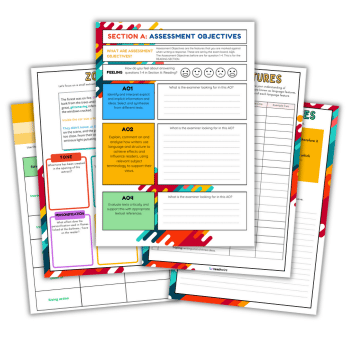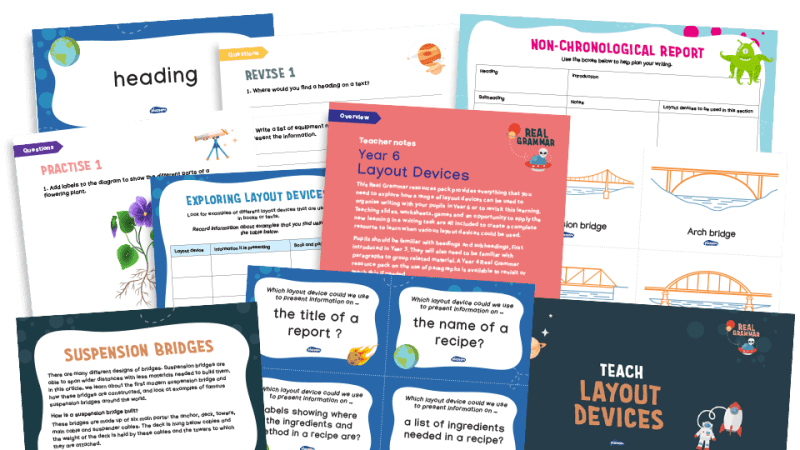4 ways to develop secondary students’ love of literature with challenging texts

If you want students to develop a genuine love of literature, as well as the skills needed to interpret it, try introducing them to challenging texts from the start, suggests Rebecca Foster…

Some of the worst texts I’ve taught in my 13-year career were, I’m sure, included on the KS3 curriculum with the best of intentions (and within the limitations of what was in the store cupboard).
With greater curriculum freedom at KS3, it may seem logical to select texts for study that are more ‘relevant’ to 11-14 year olds in the hope that they might enjoy them more – books like Holes or Two Weeks with the Queen or Stone Cold.
And why not?
Well, in short, because perhaps they’re not worthy of study.
Whilst ‘worthy’ is a loaded word, curriculum time is finite and therefore what we teach is just as important as how we teach it.
It smacks of crushingly low expectations to select books for study primarily because they’re more relevant or fun.
I don’t see history teachers picking which historical periods to cover based on how much fun they might offer, nor maths teachers choosing topics because of how relevant they are.
Why do we do this as English teachers?
No substance
One reason might be a lack of consensus about what KS3 literature study is for. Many English teachers see part of their job as being to help engender a love of reading.
The perceived wisdom is that if students enjoy the books they’re studying, then not only will they learn the skills we want them to but they might also learn to love reading. I take issue with this idea for two reasons.
First, whilst of course I want my students to enjoy reading, getting them to read for pleasure isn’t just the responsibility of English teachers.
It might be something we feel passionate about, given our subject specialism, but for too long this notion has dictated what we put on the KS3 curriculum without enough attention to the quality of the prose. We need to be clear about what the purpose of English lessons is, as separate from our desire to get students reading on their own.
Secondly, I’d have to question how good a vehicle some texts are for developing key skills such as language analysis or understanding of characterisation and structure.
Whilst you can argue that Stone Cold, for example, has an exciting plot and dual narrative perspective, the characters are about as deep as a puddle, the language is simplistic and the stereotypes are laughable.
It’s fine for a quick read at home but is it really worthy of weeks of lesson time?
Go further
As teachers, our job is to add to what our students know – to broaden their horizons – not give them more of the same.
Our remit is not to pick books which they might very well read for pleasure anyway, but to have higher expectations and expose young people to literature that offers far more than relevancy, fun or accessibility.
Literature that opens up worlds and times they might not discover on their own.
Literature that shows learners how people before them have tackled the big issues of human existence. Literature that is rich in language and cultural capital.
And the beauty is, if we do it right, our students will not only genuinely enjoy studying Stoker or Bronte or Chaucer, but they’ll gain so much more besides.
So how do we introduce more challenging texts to KS3 effectively?
1 | Give them knowledge
If students are going to engage with a challenging text, particularly a pre-20th-century one, you need to spend time building their schema to help them make sense of it.
It’s no good throwing a Victorian novel at a class without first spending time ensuring that they have a concept of Victorian England that will help them to absorb and organise the new knowledge they’ll come across in your lessons.
Take Great Expectations, for example. What will your students need to know before and then during the study of the novel to help them make sense of it?
Do they know where Kent is? Do they understand the effect the Industrial Revolution had on social class? Do they have a concept of a prison hulk and the conditions for prisoners?
Take time when planning to map out what you think you will need to spend time exploring with a class to help build their schemas. This is time well spent: not only will students have a better understanding of, and engagement with, the text, but they’ll pick up knowledge that could prove invaluable for later text study.
2 | Teach interpretations
Our KS3 students are novices when it comes to forming interpretations. As an expert, not only will you have formulated your own opinions of a text, but you will have read and absorbed any number of alternative (and evidenced) ideas through your own study of it.
If our students are going to engage meaningfully with a challenging text then it makes sense to teach interpretations explicitly, rather than expecting them to come up with their own.
Returning to Great Expectations, you might draw your students’ attention to the way in which Dickens’ description of the weather foreshadows Magwitch’s appearance in the novel.
Through questioning, you may elicit from learners that the stormy weather creates a gloomy mood that echoes that of Pip’s first meeting with the escaped convict.
However, would your class make the leap that the motif of the oppressive weather reflects Pip’s feeling of entrapment in the rigid class structure of the time? It may not be their idea, but it’s one worth sharing and exploring.
Rather than seeing teaching interpretations as limiting students’ responses, or as idea thievery, I think it’s prudent to view it as empowering them to engage critically with a text.
Once you’ve shared an interpretation, and modelled how to support it with evidence, students will be able to build on it by finding more evidence, and consequently be able to write more fluently about complex ideas.
3 | Focus on vocabulary
There’s often a concern about selecting literature with vocabulary that struggling readers might find too hard.
This explains why the least challenging texts are often reserved for lower sets, which only entrenches their disadvantage by ensuring that the word rich get richer and the word poor get poorer.
We cannot use complex vocabulary as a reason to limit the literature studied at KS3, or we risk putting a ceiling on what our students can achieve. What we can do, is explicitly teach it.
This might involve putting a list of words with definitions on the knowledge organiser, or spending time at the start of each lesson explaining some of the language that will come up in the reading that day.
4 | Be the voice
Finally, you are the best storyteller in your classroom, bar none.
If you want your pupils to follow the thread of a narrative then you should be the one reading to them, rather than having a series of student readers with varying levels of confidence and fluency.
You can anticipate the required pace and tone, plus, when you’re the one in charge of narration, you will be perfectly placed to be able to stop and explain things where necessary.
Rebecca Foster is head of English and associate senior leader (teaching and learning) at Wyvern St Edmund’s Learning Campus in Salisbury. Follow her on Twitter at @TLPMsF.











